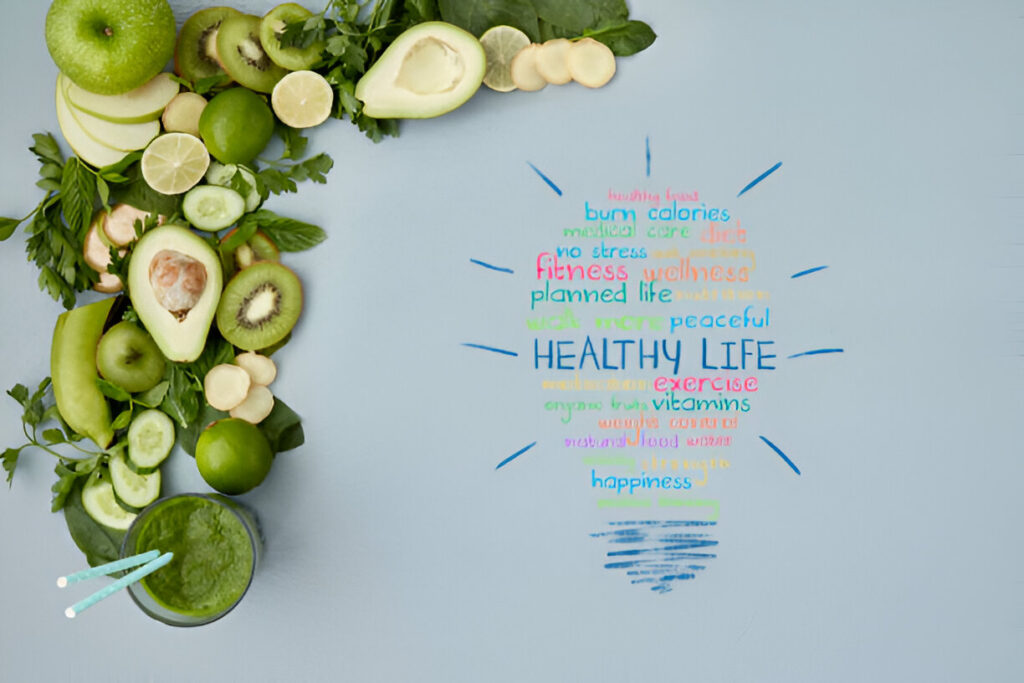The relationship between nutrition and mental health has garnered significant attention in recent years, especially with growing evidence of the gut-brain connection. What you eat doesn’t just impact your physical health but also plays a vital role in your mental well-being. This article delves into how nutrition influences mental health and the intricate link between the gut and brain.
The Gut-Brain Axis: A Two-Way Communication System
The gut and brain are closely interconnected through the gut-brain axis, a complex communication system involving the nervous system, hormones, and immune system. The vagus nerve, which connects the brain to the digestive system, facilitates this communication.
Imbalances in gut health, such as dysbiosis (an imbalance in gut bacteria), can directly impact mental health, contributing to conditions like anxiety and depression.
The Role of Gut Microbiota in Mental Health
Your gut is home to trillions of bacteria, collectively known as the gut microbiota. These bacteria play a critical role in producing neurotransmitters like serotonin, dopamine, and gamma-aminobutyric acid (GABA), which regulate mood and behavior.
When the gut microbiota is disrupted, it can lead to:
- Reduced production of mood-regulating chemicals.
- Increased inflammation, which is linked to mental health disorders.
- Impaired communication between the gut and brain.
Foods That Boost Mental Health Through the Gut
Certain foods can promote a healthy gut microbiota and positively influence mental health. These include:
- Probiotic-Rich Foods: Yogurt, kefir, kimchi, and sauerkraut are rich in probiotics that support gut health.
- Prebiotic Foods: Bananas, garlic, onions, and whole grains feed beneficial gut bacteria.
- Omega-3 Fatty Acids: Found in fatty fish, flaxseeds, and walnuts, omega-3s support brain health.
- High-Fiber Foods: Fruits, vegetables, and legumes enhance gut health and reduce inflammation.
How Poor Nutrition Impacts Mental Health
Diets high in processed foods, sugar, and unhealthy fats can negatively affect mental health. Such diets may:
- Disrupt the gut microbiota, leading to inflammation.
- Reduce the production of essential neurotransmitters.
- Increase the risk of mental health disorders like anxiety and depression, prompting some to seek immediate support through resources like a 24-hour anxiety hotline free.
Studies show that individuals consuming a Western-style diet are more likely to experience mental health issues compared to those following a Mediterranean or balanced diet.
Nutritional Strategies for Improved Mental Well-Being
Adopting certain dietary habits can significantly benefit both gut health and mental well-being. Consider the following tips:
- Incorporate a Balanced Diet: Focus on whole, unprocessed foods rich in vitamins, minerals, and fiber.
- Stay Hydrated: Proper hydration is crucial for both physical and mental health.
- Limit Processed Foods: Reduce intake of sugar, artificial additives, and trans fats.
- Supplement When Needed: Consult a healthcare professional to address potential deficiencies in nutrients like vitamin D, B vitamins, and magnesium.
The Emerging Field of Nutritional Psychiatry
Nutritional psychiatry is an evolving discipline that explores how diet influences mental health. Research in this field supports the use of dietary interventions alongside traditional therapies for managing mental health disorders. This holistic approach underscores the importance of addressing gut health to achieve better psychological outcomes.
Conclusion: Nutrition as a Pillar of Mental Health
The connection between nutrition and mental health underscores the importance of a healthy diet in promoting overall well-being. By understanding the gut-brain connection and making mindful dietary choices, you can enhance not only your physical health but also your emotional resilience and mental clarity.
Incorporating gut-friendly foods and focusing on a balanced diet can be transformative in nurturing both your mind and body.

